Uncategorized
-
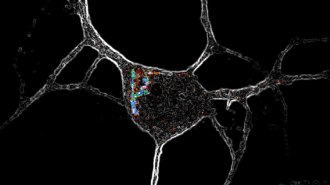 Health & Medicine
Health & MedicinePsychedelics may improve mental health by getting inside nerve cells
Psychedelics can get inside neurons, causing them to grow. This might underlie the drugs’ potential in combatting mental health disorders.
-
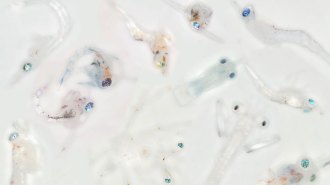 Animals
AnimalsGlassy eyes may help young crustaceans hide from predators in plain sight
Nanospheres in the eye reflect light that matches the color of the surrounding water, possibly making the animals invisible to nearby predators.
-
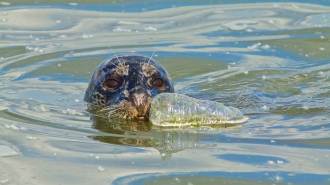 Oceans
Oceans50 years ago, scientists discovered the Great Pacific Garbage Patch
In 1973, plastic bottles adrift in the North Pacific alarmed scientists. Fifty years later, more than 1.8 trillion pieces of plastic litter the area.
By Demian Perry -
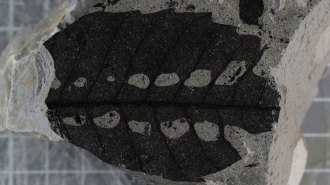 Paleontology
PaleontologyInsect bites in plant fossils reveal leaves could fold shut millions of years ago
The 252-million-year-old fossil leaves have symmetrical holes, which suggest an insect bit through the leaves when they were folded.
-
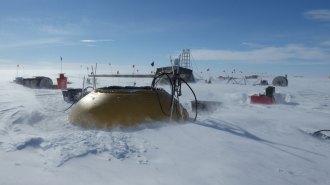 Climate
ClimateRapid melting is eroding vulnerable cracks in Thwaites Glacier’s underbelly
Thwaites is melting slower than thought, but the worst of it is concentrated in underbelly cracks, threatening the Antarctica glacier’s stability.
By Douglas Fox -
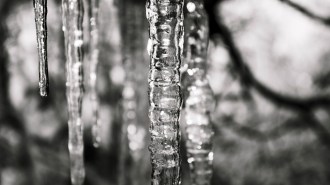 Physics
PhysicsHere’s why icicles made from pure water don’t form ripples
A new study explains why icicles made from pure water have irregular shapes rather than the ripples typical of the salty icicles found in nature.
-
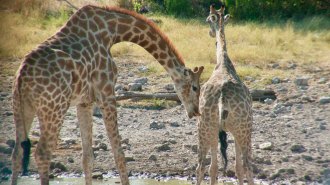 Animals
AnimalsWhy male giraffes drink potential mates’ pee
In giraffes, an organ that detects pheromones has a stronger connection to the mouth than the nose. That’s different from many other mammals.
-
 Astronomy
AstronomyThe James Webb telescope spotted the earliest known ‘quenched’ galaxy
A galaxy dubbed GS-9209 ceased forming stars more than 12.5 billion years ago after a 200-million-year-long sprint.
-
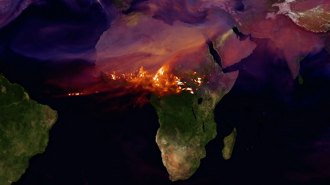 Climate
ClimateClimate ‘teleconnections’ may link droughts and fires across continents
Far-reaching climate patterns like the El Niño-Southern Oscillation may synchronize droughts and regulate scorching of much of Earth’s burned area.
By Nikk Ogasa -
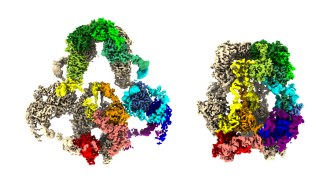 Health & Medicine
Health & Medicine3-D maps of a protein show how it helps organs filter out toxic substances
Images of LRP2 in simulated cell environments reveal the structural changes that let it catch molecules outside a cell and release them inside.
-
 Health & Medicine
Health & MedicineA chemical imbalance doesn’t explain depression. So what does?
The causes of depression are much more complex than the serotonin hypothesis suggests
-
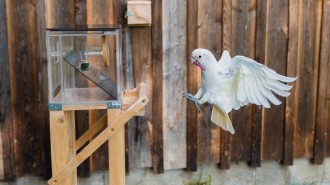 Animals
AnimalsCockatoos can tell when they need more than one tool to swipe a snack
Cockatoos know when it will take a stick and a straw to nab a nut in a puzzle box. The birds join chimps as the only known nonhumans to use a tool kit.